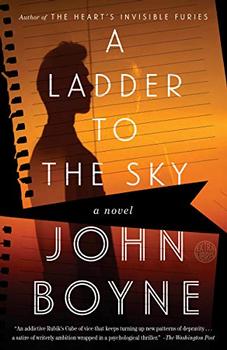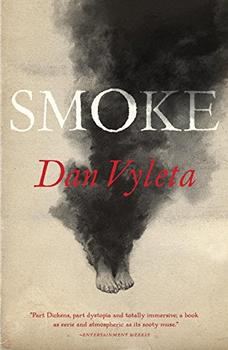Summary | Excerpt | Reading Guide | Reviews | Beyond the book | Read-Alikes | Genres & Themes | Author Bio

A Confession
by Michael CoxThe Meaning of Night is a true Victorian
potboiler. The convoluted plot revolves around Edward, who
introduces himself in the first line as a murderer, and is soon,
by his own words, shown to be a morally compromised, monomaniac.
Not the sort of person one would naturally feel sympathy for;
but he is persuasive and strangely likeable in a rather unsavory
sort of way; and, as his grievances are revealed, the reader
can't help but feel a certain sympathy for him - according to
the letter of the law his crimes are many but, morally speaking,
one is left with the feeling that perhaps his only crime was the
one to which he confesses in his opening sentence.
This is a book that you are likely to either love or hate. The
four key pre-publication review sources in the USA all give it a
"starred review", but both reviewers writing for the Daily
Telegraph (UK), and Janet Maslin, writing in The New York
Times give it a definitive thumbs down. Whether you enjoy
it will largely depend on whether you can give yourself up to
the plot in all its melodramatic Victoriana; there are any
number of points in this almost 700-page novel where things
could have been concluded, if only our protagonist had taken one
extra step, instead he meanders off elsewhere - a useful device
for keeping readers of a weekly serial absorbed (and, as we all
know, many of the best known Victorian novels were written for
serialization), but it's a device that feels a little labored to
the modern reader. As for the denouement, most readers will spot it coming many chapters ahead.
The characters are delightfully typecast - there's the tragic
figure of our much put-upon anti-hero who is driven to commit
violence for what he believes is a justified cause; a truly
dastardly old-Etonian poetry-spouting villain (who, if this was a
play, would receive hisses from the audience every time he came
on stage); the exceedingly wealthy and influential Lord Tansor,
living off the gains of his brighter ancestors; a dead-ringer
for Uriah Heap; plus a massive supporting cast representing
every strata of society, both urban and country; and last but
not least, Evenwood House itself and its great library - the
representation of everything that Edward yearns for but that
remains tantalizingly out of reach (for more about Evenwood and
the library see the sidebar).
About the Author: Michael Cox was born in
Northamptonshire in 1948. After graduating from Cambridge in
1971, he went into the music business as a songwriter and
recording artist, releasing two albums and a number of singles
for EMI under the name Matthew Ellis and a further album, as
Obie Clayton, for the DJM label. In 1977, he took a job in
publishing, with the Thorsons Publishing Group (now part of
HarperCollins). In 1989, he joined Oxford University Press,
where he became Senior Commissioning Editor of Reference
Books. Since then he has published a number of books including
widely respected anthologies such as The Oxford Book of
Victorian Detective Stories; The Oxford Book of Victorian
Ghost Stories; and The Oxford Chronology of English
Literature, a major scholarly resource containing
bibliographical information on 30,000 titles from 4,000 authors,
dating from 1474 to 2000.
In April 2004, he began to lose his sight as a result of cancer.
In preparation for surgery he was prescribed a steroidal drug,
one of the effects of which was to initiate a temporary burst of
mental and physical energy. This, combined with the stark
realization that his blindness might return if the treatment
wasn't successful, spurred him finally to begin writing in
earnest the novel that he had been contemplating for over thirty
years, and which up to then had only existed as a random
collection of notes, drafts, and discarded first chapters.
Following surgery, work continued on The Meaning of Night,
which was sold at a hotly contested auction in the UK in January
2005.
He still lives in Northamptonshire with his wife Dizzy, and is
currently working on a sequel, which will be set twenty years
later and will feature a few of the characters from The
Meaning of Night, principally Emily Carteret. If the second
book works out, he would like to write a third book, taking the
story up to the early years of the twentieth century and the
final demise of the Duport dynasty and the breaking-up of its
physical symbol – Evenwood.
![]() This review was originally published in The BookBrowse Review in October 2006, and has been updated for the
October 2007 edition.
Click here to go to this issue.
This review was originally published in The BookBrowse Review in October 2006, and has been updated for the
October 2007 edition.
Click here to go to this issue.

If you liked The Meaning of Night, try these:

by John Boyne
Published 2019
A seductive, unputdownable psychodrama following one brilliant, ruthless man who will stop at nothing in his pursuit of success.

by Dan Vyleta
Published 2017
"Smoke is an addictive combination of thriller, fantasy, and historical novel, with a dash of horror. It's chilling and complex and amazingly imaginative." - Marilyn Dahl, Shelf Awareness
Most of us who turn to any subject we love remember some morning or evening hour when...
Click Here to find out who said this, as well as discovering other famous literary quotes!
Your guide toexceptional books
BookBrowse seeks out and recommends the best in contemporary fiction and nonfiction—books that not only engage and entertain but also deepen our understanding of ourselves and the world around us.